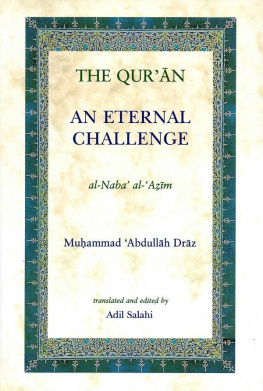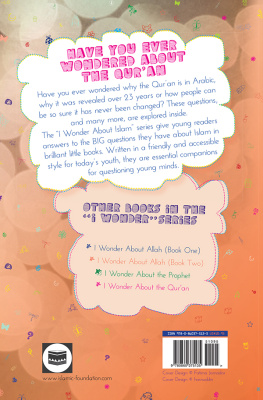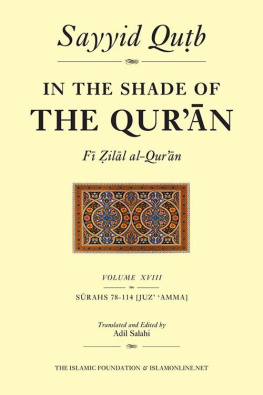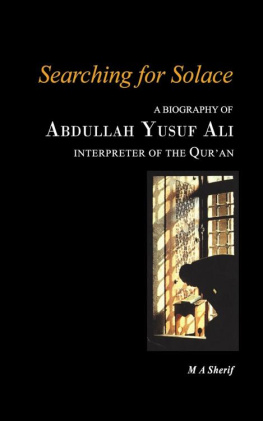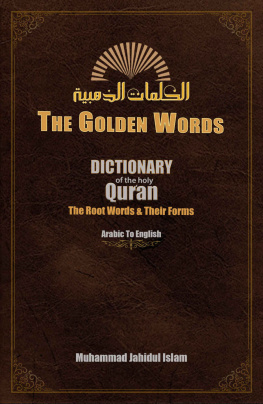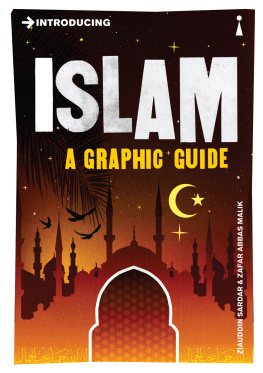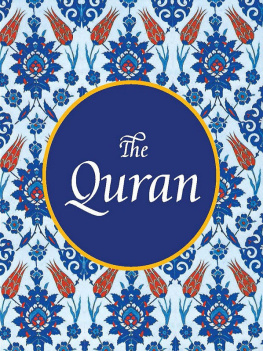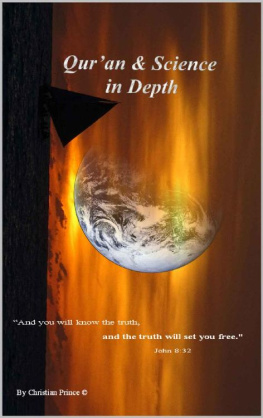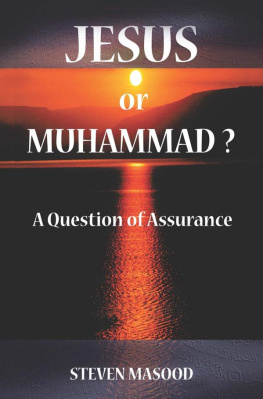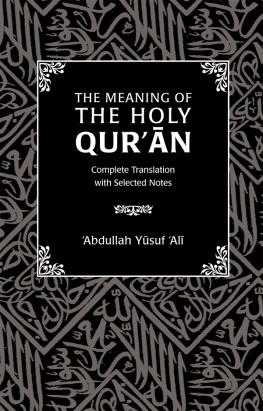Draz Muhammad Abdullah - The Quran: An Eternal Challenge
Here you can read online Draz Muhammad Abdullah - The Quran: An Eternal Challenge full text of the book (entire story) in english for free. Download pdf and epub, get meaning, cover and reviews about this ebook. year: 2017, publisher: Kube Publishing Ltd, genre: Religion. Description of the work, (preface) as well as reviews are available. Best literature library LitArk.com created for fans of good reading and offers a wide selection of genres:
Romance novel
Science fiction
Adventure
Detective
Science
History
Home and family
Prose
Art
Politics
Computer
Non-fiction
Religion
Business
Children
Humor
Choose a favorite category and find really read worthwhile books. Enjoy immersion in the world of imagination, feel the emotions of the characters or learn something new for yourself, make an fascinating discovery.
- Book:The Quran: An Eternal Challenge
- Author:
- Publisher:Kube Publishing Ltd
- Genre:
- Year:2017
- Rating:5 / 5
- Favourites:Add to favourites
- Your mark:
- 100
- 1
- 2
- 3
- 4
- 5
The Quran: An Eternal Challenge: summary, description and annotation
We offer to read an annotation, description, summary or preface (depends on what the author of the book "The Quran: An Eternal Challenge" wrote himself). If you haven't found the necessary information about the book — write in the comments, we will try to find it.
The Quran: An Eternal Challenge — read online for free the complete book (whole text) full work
Below is the text of the book, divided by pages. System saving the place of the last page read, allows you to conveniently read the book "The Quran: An Eternal Challenge" online for free, without having to search again every time where you left off. Put a bookmark, and you can go to the page where you finished reading at any time.
Font size:
Interval:
Bookmark:
THE QURN:
AN ETERNAL
CHALLENGE
al-Naba al-Am
Muammad Abdullh Drz
Translated and Edited by
Adil Salahi
THE ISLAMIC FOUNDATION
Published by
The Islamic Foundation, Markfield Conference Centre,
Ratby Lane, Markfield, Leicester LE67 9SY, United Kingdom
Tel: (01530) 244944, Fax: (01530) 244946
E-mail:
Website: www.islamic-foundation.org.uk
Quran House, PO Box 30611, Nairobi, Kenya
PMB 3193, Kano, Nigeria
Copyright The Islamic Foundation 2001/1421 AH
All rights reserved. No part of this publication may be reproduced, stored in a retrieval system, or transmitted in any form or by any means, electronic, mechanical, photocopying, recording or otherwise, without the prior permission of the copyright owner.
British Library Cataloguing-in-Publication Data
Draz, Mohammad Abdullah, 18941958
The Quran: an eternal challenge: al-Naba al-Azim
1. Koran - Evidences, authority, etc. 2. Koran - Language, style
I. Title II. Salahi, Adil
297.1226
eISBN 9780860376491
Typeset by N.A.Qaddoura
Cover design by Suhaib Salahi

Consonants. Arabic
initial: unexpressed medial and final:
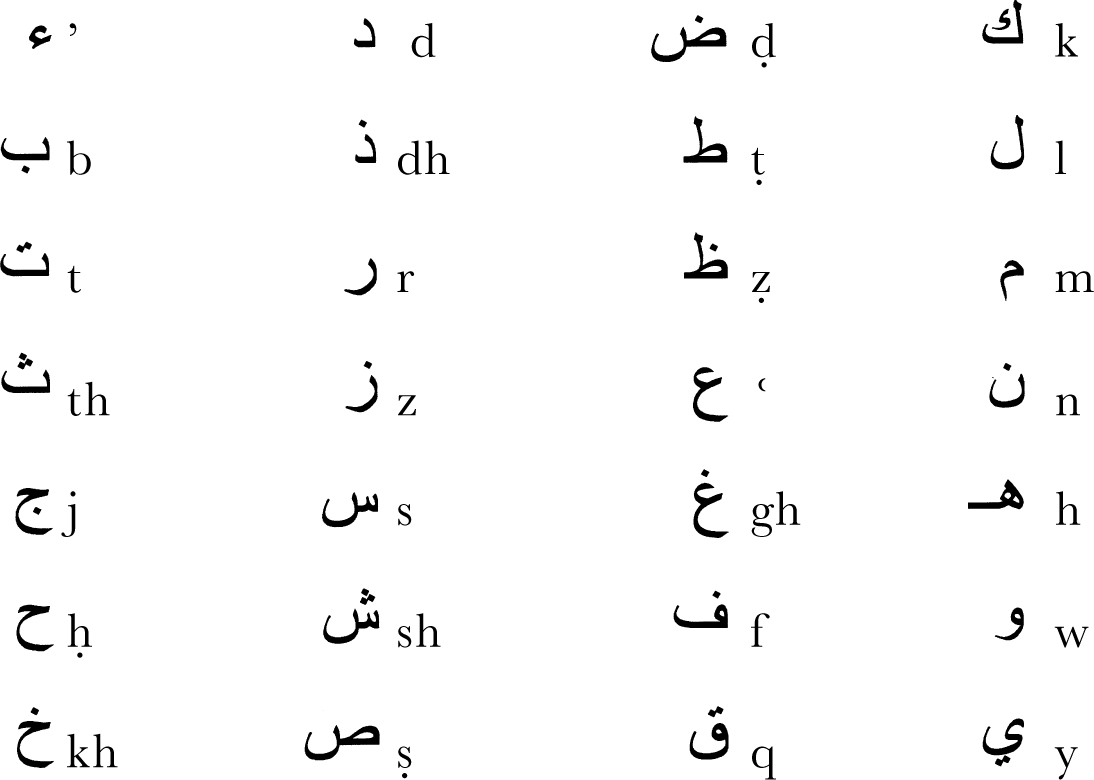
Vowels, diphthongs, etc.
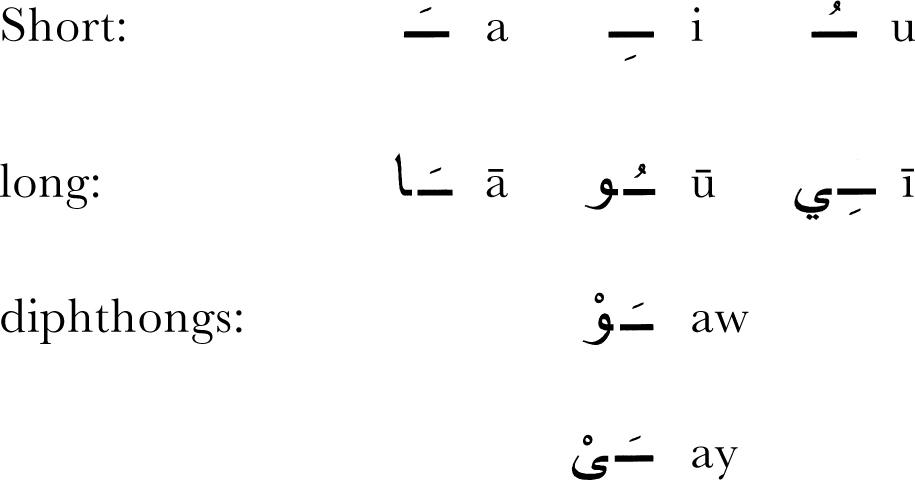
Introduction by Adil Salahi
It is more than 40 years since I first read this book in Arabic. I had just started university at the time and I was assigned to write an essay about religion and its effect on moral standards in the community. At that time, the Arab world, particularly Egypt, was moving away from Islam under the dual influence of military dictatorship and socialist dreams. It was totally unfashionable for a young man, as I was at the time, to speak about religion in general, and Islam in particular. In fact, soon after my arrival in Egypt to undertake my studies, I learnt to keep to myself the fact that I offered prayers regularly.
Searching for sources for my essay, I went to a bookshop specialising in Islamic books. Here, I found a booklet on religion by Dr Drz which I included in my purchase for the day. However, the bookshop assistant recommended another book with the Arabic title Al-Naba al-Am as highly readable. I bought the book and started reading it that day. Interested in both Arabic literature and the Qurn, I was hardly able to put the book down. I admired the authors style, for it is both fine and powerful. But the way he treated his subject matter was even more captivating. It was not particularly relevant to my essay, but it gave me, as every reader soon discovers, penetrating knowledge into the superior literary excellence of the Qurn.
About 15 years later, I picked up another copy in London during a visit to a small Islamic bookshop. I read it again, and discovered that I learnt even more than during my first read of it. Dr Drzs scholarly treatment of his subject matter is such that the higher a readers standard of education, the more he or she is able to benefit by it.
Two years ago, I attended a small study circle of one of my teachers, and he was reading a section of this book. The discussion that followed refreshed my mind of the priceless information it contains. That same evening I decided that the book should be made available in English. Soon afterwards, I started splitting the book into short articles which were published in my column, Islam in Perspective, in the Saudi paper, Arab News. Much of the book was published in this way. Now it has been completed, by Gods grace, and it is my pride and pleasure to present it to English readers, providing as it does a rare insight into the Qurn.
The author has one theme in mind throughout the book, which is to use the Qurn itself to testify to its author, God Almighty. To this end, he uses the information provided in the Qurn, which could not have been available to anyone but God, and he uses its style and method of expression. His analysis of the latter is masterly, showing a rare understanding of the text combined with a profound literary talent. Indeed, his own style combines power with simplicity. This makes the book a masterpiece with few peers in Qurnic literary studies.
As I was finalising this work, I was so pleased to see a copy of Drzs other work, Introduction to the Qurn. I have also learnt with great pleasure that efforts are underway to translate his work on Ethics and Morality in the Qurn. This the author wrote in French as a thesis submitted to the Sorbonne for which he was awarded the degree of Ph.D. This translation will rely on the French original, as the author did not translate it himself.

Muammad Abdullh Drz was born in 1894 in Maallat Diyi, a village of Kafr al-Sheikh County in northern Egypt. His father was an Islamic scholar educated in Al-Azhar, the oldest university in the world. The father wanted his son to follow religious education, so he sent him to the religious institute of Alexandria, affiliated to Al-Azhar. He followed this religious line of education throughout his schooling, until he received his degree. He then decided to learn French, as he considered such knowledge of vital importance in serving the cause of Egyptian independence. During the popular uprising of 1919, he joined a number of young Egyptians visiting foreign embassies to explain the uprising and to seek help in persuading Great Britain, the colonial power, to accede to the demands of the Egyptian people for independence. He also wrote in French defending Islam against its detractors.
In 1928, he was appointed to the teaching staff of the Department of Higher Education in Al-Azhar. He was then transferred, the following year, to the Department of Specialisation at the same university, and in 1930, he moved to the Faculty of Ul al-Dn, which specialises in the basic sources of Islamic knowledge.
In 1936, he was sent on a mission to France, where he stayed for 12 years. It was during this period that he was admitted to Sorbonne University and awarded his Ph.D.
On his return to Egypt, he taught the History of Religion at the University of Cairo, Qurnic Commentary in Dr al-Ulm, a teachers college which was, at the time, affiliated to Al-Azhar. He also taught Arabic and Moral Philosophy at Al-Azhar University. Furthermore, he was elected to the membership of Senior Islamic Scholars, i.e. Jamat Kibr al-Ulam in 1949. He continued in these positions until his death in January 1958, when he was attending a conference in the city of Lahore, Pakistan.

In translating this work, I have tried to be faithful to the text. However, on a small number of occasions I have ventured to expand a little where I felt this to be necessary to make the point under discussion easier to understand. Where the author explains a point in a footnote, I have incorporated the footnote into the text, to ensure continuity and an easier grasp of the idea under discussion. However, where a footnote refers to something that is not immediately relevant to the text, I have left that as it is. On the other hand, I have omitted footnotes that are of a purely linguistic nature, because they would be very difficult for a non-Arabic speaking reader to follow.
Next pageFont size:
Interval:
Bookmark:
Similar books «The Quran: An Eternal Challenge»
Look at similar books to The Quran: An Eternal Challenge. We have selected literature similar in name and meaning in the hope of providing readers with more options to find new, interesting, not yet read works.
Discussion, reviews of the book The Quran: An Eternal Challenge and just readers' own opinions. Leave your comments, write what you think about the work, its meaning or the main characters. Specify what exactly you liked and what you didn't like, and why you think so.

